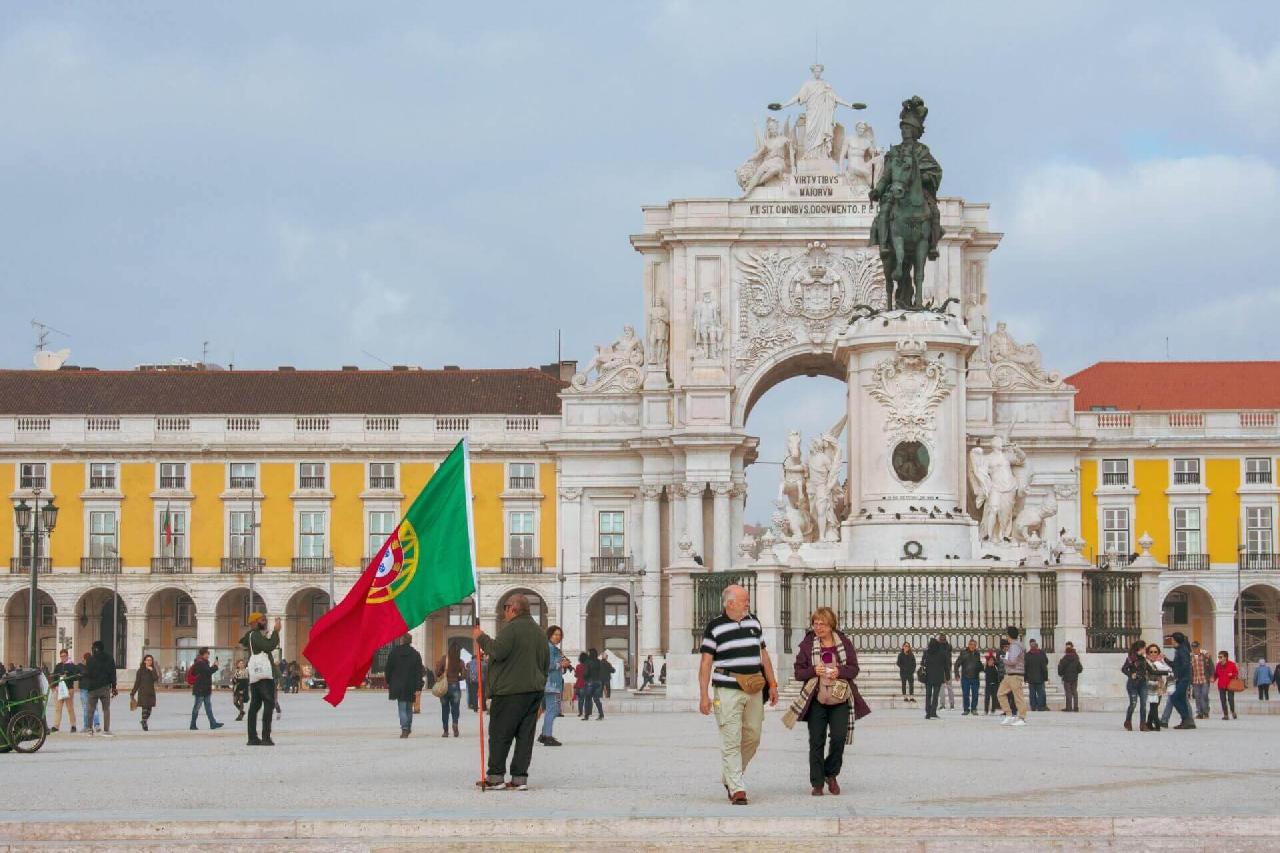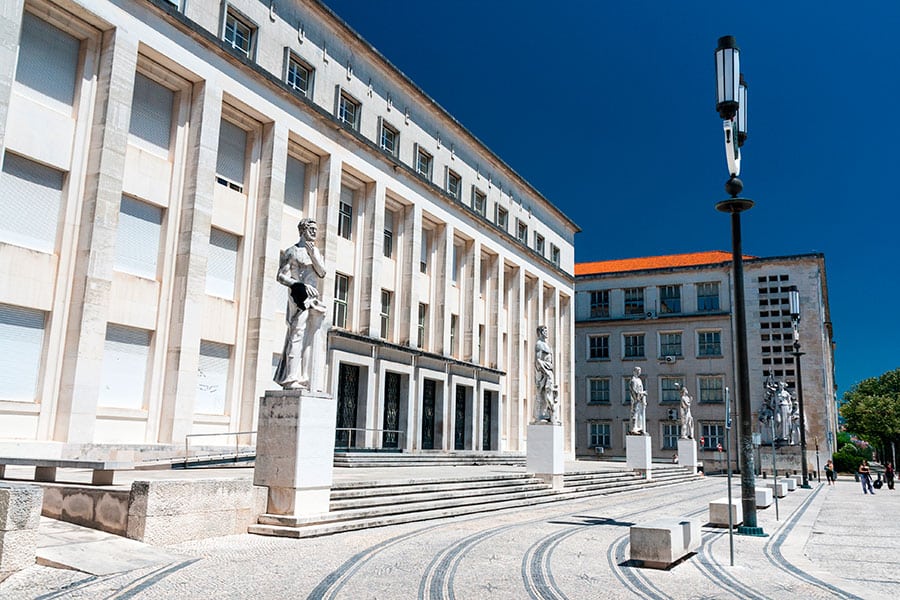Study in Portugal — Complete Guide
Expanded academic, financial and immigration information for international students. Always verify final requirements and fees on official pages linked below.
Language Study (Portuguese & English preparatory courses)

Overview: Universities and private language schools offer Portuguese (elementary → advanced) and academic-english preparatory courses. Many public universities run intensive language courses before the semester starts (useful for degree entry or integration).
Types of Courses
- Intensive Portuguese: 4–12 weeks (focus: communication + academic Portuguese).
- University Portuguese semester: 1 semester, may award ECTS in some institutions.
- Academic English pre-sessional: 1–3 months to prepare non-native applicants.
Costs (typical)
| Course | Typical price |
|---|---|
| Short intensive (per month) | €200 – €700 |
| Semester course (university) | €700 – €2,000 |
| Pre-sessional academic English | €800 – €3,000 |
Tip: many universities offer free or subsidized Portuguese classes for enrolled degree students — check the International/Language Centre page of your chosen university (examples linked in the footer).
Bachelor’s Degree (1st cycle)

Overview: Typical length 3 years (180 ECTS) for most bachelor programmes. Public universities commonly teach in Portuguese; a growing number of institutions offer English-taught programmes (especially in STEM/business).
Admission routes
- National call for public HEIs (managed via DGES rules) — applicants from many countries apply through national procedures. See DGES national call.
- Institutional calls (private HEIs or specific university calls).
- Recognition/equivalence of foreign secondary qualifications is required — DGES provides information on equivalence. (DGES – International Students).
Tuition fees — typical ranges
| Student group | Typical annual tuition (public HEIs) |
|---|---|
| EU / EEA | ~€550 – €1,050 (varies by institution & programme) |
| Non-EU / Non-EEA | ~€1,500 – €4,500 (many programmes fall ~€2,500–€4,500) |
Documents commonly required
- Secondary school certificate + transcript (legalised / apostilled and translated if required)
- Proof of language ability: Portuguese (if programme in PT) or English tests (IELTS/TOEFL) for English-taught programmes
- Motivation letter, CV (for some programmes), entrance tests where required
Estimated living costs (monthly)
| Item | Approx. cost |
|---|---|
| Student room (shared) | €200 – €450 |
| Private studio / flat (student) | €400 – €800 |
| Food & groceries | €150 – €300 |
| Transport | €20 – €60 |
| Monthly total (typical) | €600 – €1,100 |
Master’s Degree (2nd cycle)

Overview: Master programmes are typically 1–2 years (60–120 ECTS). Many English-taught MSc/MA programmes are available (esp. in Lisbon, Porto, Coimbra, Aveiro).
Admission & entry requirements
- Recognised bachelor degree in a related field.
- Transcript, diploma (legalised/translated if required).
- Language proof (IELTS/TOEFL or Portuguese proficiency), CV, motivation letter, and recommendation letters for research programmes.
Tuition & scholarships
| Category | Typical annual amount |
|---|---|
| EU/EEA students (public HEIs) | €600 – €2,000 |
| Non-EU students (public & private) | €1,500 – €5,500 (varies by field & university) |
Funding & scholarships
- University scholarships and merit-based tuition waivers (check each university’s international office).
- National/European mobility scholarships (Erasmus+ for incoming/outgoing exchange students).
- Some institutions offer assistantships or research grants for MSc students in research tracks.
PhD (Doctoral) Programmes

Overview: Doctoral studies (PhD) usually last 3–4 years and are research-focused. Funding commonly comes from university contracts, national research grants or European programmes (Horizon Europe).
Application & funding
- Apply to advertised doctoral positions / PhD programmes (often posted on university pages and EURAXESS).
- Many PhD positions are paid (research assistant contracts) — stipend amounts depend on funding source.
- Unfunded PhD candidates must show financial means or find scholarships.
Typical fees & living costs
- Doctoral tuition often low or waived for funded positions; administrative fees may apply (check each university).
- Living costs similar to master’s students: €700–€1,100 per month depending on city.
Visa & Residence — Step-by-step for non-EU/EEA students

Which permit?
- Short stays < 90 days: Schengen short-stay visa (if required by nationality).
- Long stays (degree study > 90 days): National D-type visa for study (residence visa) → then apply for residence permit at SEF in Portugal after arrival.
Typical documents required for the visa
- Valid passport (with sufficient validity)
- Letter of acceptance / enrolment from the Portuguese HEI
- Proof of financial means (bank statements / sponsor letter)
- Proof of accommodation
- Health insurance covering the stay
- Criminal record certificate (may be requested by some consulates)
Application flow (summary)
- Obtain unconditional admission from the university and confirm enrolment.
- Apply for a national study visa (Type D) at the Portuguese embassy/consulate in your country (submit documents, biometrics if required).
- Enter Portugal within visa validity, then book/apply for a residence permit with SEF (Portuguese Immigration Service) — residence permits are initially typically valid for one year then renewable. See SEF guidance: EU Immigration Portal (Portugal student).
Fees & timing (indicative)
| Service | Typical cost / note |
|---|---|
| Visa application (consulate) | Variable (check consulate) |
| Residence permit (SEF) | Variable; check SEF procedures |
| Health insurance | €30 – €60 / month (approx.) |
